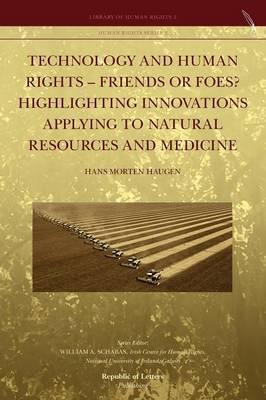Human Rights Series, 2 (Library of Human Rights, 2) Hans Morten Haugen offers a lucid analysis of the intersection of intellectual property with health, traditional knowledge and biodiversity against a backdrop of established and emerging human rights. How those rights interface and who decides are among the most difficult issues in international intellectual property, and there is no doubt that there is room for fresh ideas on how to simultaneously achieve the goals of innovation, development and access. Daniel Gervais, Ph.D., FedEx Research Professor of Law, Vanderbilt University Law School Realization of the right to enjoy the benefits of scientific progress is a necessary prerequisite for the realization of many other human rights. Yet, not states, nor human rights monitoring mechanisms, nor the scientific community have given focus to this right, its meaning and application. It is in this regard that Haugen's book is so important. Haugen's analysis of the meaning of the right, barriers to its realization and practical steps for its implementation, represents a significant contribution to the emerging literature about this neglected right. Jessica Wyndham, Associate Director, Scientific Responsibility, Human Rights & Law Program of the American Association for the Advancement of Science Hans Morten Haugen takes us on an insightful journey through diverse spheres of human endeavour, in search of the connections between technological breakthroughs and the realization of human rights. He adopts a nuanced approach to pithy topics such as the use of genetic technology for drought-resistant food crops or second generation biofuels, and the impact of patents on the diffusion of medical technology. Haugen demonstrates how a deeper understanding of human rights principles and treaty provisions can help us arrive at innovation policies which are socially more desirable and inclusive. This is essential reading not only for policymakers and activists, but also for scientists and innovators seeking to define their social responsibilities through a closer look at human rights. Tzen Wong, Editor, Intellectual Property and Human Development: Current Trends and Future Scenarios (CUP 2011). Table of Contents I: Introducing a human rights framework and clarifying human rights provisions Ch 1: The Context, Including Basic Approaches or Understanding Human Rights Ch 2: The Right to Benefit from Scientific Progress and its Applications Ch 3: The Right to Enjoy










